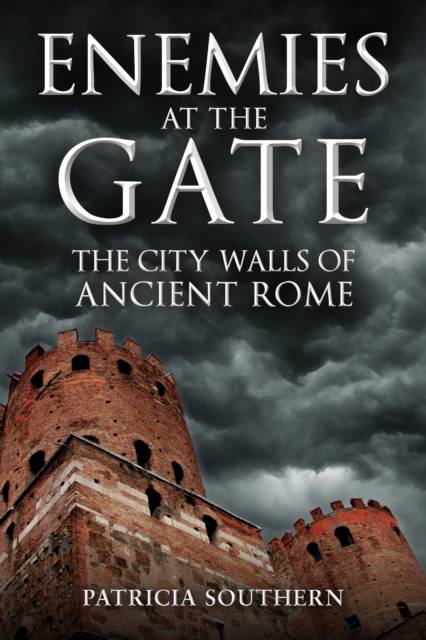
- Afhalen na 1 uur in een winkel met voorraad
- In januari gratis thuislevering in België
- Ruim aanbod met 7 miljoen producten
- Afhalen na 1 uur in een winkel met voorraad
- In januari gratis thuislevering in België
- Ruim aanbod met 7 miljoen producten
Omschrijving
The earliest known wall in Rome encircled the early settlement on the Palatine Hill. Archaeological evidence corroborates the traditional date of the city's foundation in the eighth century BC. No new wall is known until the early sixth century BC, when King Servius Tullius built the defences named after him. The growth of the Empire and the erection of frontiers by the Emperor Hadrian obviated the need for walls around Rome until the third century AD, when invading tribes crossed the frontiers. Defensive walls were built around several Roman cities, and in AD 274 the Emperor Aurelian constructed a new wall round Rome itself. Most of the Aurelian wall, built of millions of bricks, still stands.
During the civil wars of the early fourth century AD, the Emperors Severus II and Galerius besieged Rome but failed to gain entry. The wall was heightened in the early fifth century by the Emperor Honorius, the final version possessing ramparts, artillery platforms, and galleries with arrow slits. Neither frontiers nor walls can ever be impermeable, so Rome was famously taken but not held by Alaric in 410 and later by Totila, King of the Ostrogoths. After some neglect, from the seventh or eighth century AD onwards it was the Popes who kept the wall in repair, as attested by the many commemorative stones set in the brickwork. Repairs are ongoing, of course, to this vast ancient monument.
Specificaties
Betrokkenen
- Auteur(s):
- Uitgeverij:
Inhoud
- Aantal bladzijden:
- 384
- Taal:
- Engels
Eigenschappen
- Productcode (EAN):
- 9781398112971
- Verschijningsdatum:
- 15/05/2024
- Uitvoering:
- Hardcover
- Formaat:
- Genaaid
- Afmetingen:
- 166 mm x 237 mm
- Gewicht:
- 793 g

Alleen bij Standaard Boekhandel
Beoordelingen
We publiceren alleen reviews die voldoen aan de voorwaarden voor reviews. Bekijk onze voorwaarden voor reviews.









